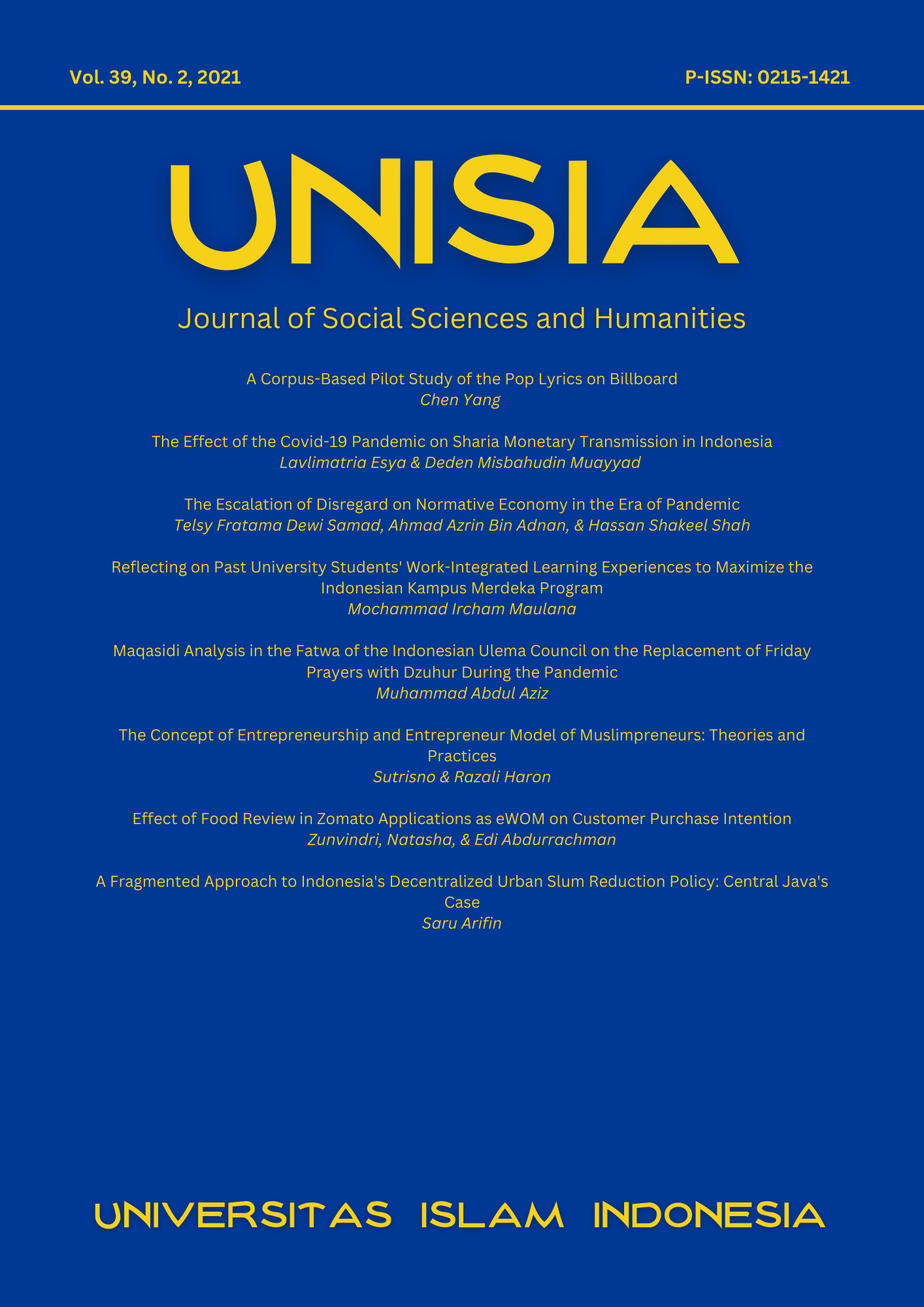Main Article Content
Abstract
Eating is no longer just to meet the needs, but also become an activity of socializing. With the increasing number of places to eat in Indonesia, encourage people to find a recommendation for a place to eat before deciding to try the food at the eating place. But, when it came to the internet and smartphone, people can easily get digital recommendation information, in the form of reviews provided by those who like to share their dining experiences (foodies). This digital recommendation is then called Electronic Word of Mouth. However, the review given digitally or online has its drawbacks, less objective, ending with a disappointing experience. This research objective is to discuss the effect of using Zomato on users' intentions to purchase or try food or restaurants. Descriptive quantitative approach and complete technique of survey data using questionnaire would be executed. Data analysis in this research is descriptive statistic and regression. Results obtained are information quality, information credibility, need of information, and attitude toward information have positive influence on information adoption. Moreover, information adoption also has positive influence on customer purchase intention. The conclusion from this study shows the variables that are interconnected and affect each other.
Article Details
License
- Authors retain copyright and grant the journal right of first publication with the work simultaneously licensed under a Creative Commons Attribution License that allows others to share the work with an acknowledgement of the work's authorship and initial publication in this journal.
- Authors are able to enter into separate, additional contractual arrangements for the non-exclusive distribution of the journal's published version of the work (e.g., post it to an institutional repository or publish it in a book), with an acknowledgement of its initial publication in this journal.
- Authors are permitted and encouraged to post their work online (e.g., in institutional repositories or on their website) prior to and during the submission process, as it can lead to productive exchanges, as well as earlier and greater citation of published work.
How to Cite
Zunvindri, Z., Natasha, N., & Abdurrachman, E. (2021). Effect of Food Review in Zomato Applications as eWOM on Customer Purchase Intention. Unisia, 39(2). https://doi.org/10.20885/unisia.vol39.iss2.art7




